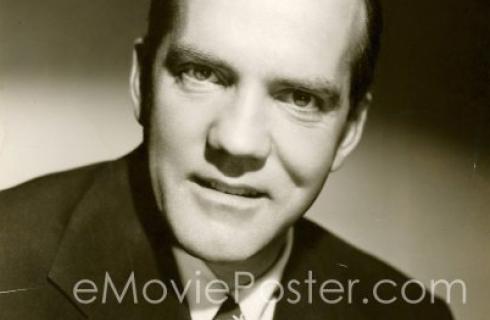Fred M. Wilcox
Fred McLeod Wilcox was born in Tazewell, Virginia, on December 22, 1906, one of six children born to James Wilcox, a Kentucky optometrist and drugstore owner, who was married six times, twice to one woman. His six children were from his first wife.
Wilcox's six siblings (his father adopted his niece after the death of his sister in 1912) included actress Ruth Selwyn (born Ruth Wilcox), who was married to producer/director/writer/playwright Edgar Selwyn, one of the founders of Goldwyn Pictures, and former showgirl Pansy Wilcox Schenck (Mrs. Nicholas M. Schenck), who was married to Loew's Inc. President Nicholas M. Schenck, one of the pioneers of the film industry. Pansy Schenck was the mother-in-law of actor Helmut Dantine, with whom Wilcox worked on a film in India in 1962.
A graduate of the University of Kentucky, Wilcox began his film-industry career at Metro-Goldwyn-Mayer, in its New York publicity department. He became an assistant to King Vidor in 1929, and worked on the great director's masterpiece, Hallelujah (1929). Subsequently, he worked as a director shooting screen-tests of new talent, then served an apprenticeship as an assistant director on three of his brother-in-law Edgar Selwyn's pictures. He also was an assistant- and second-unit director on two more films before moving to the short subjects unit in 1938.
After working his way up through MGM, he got his shot as a feature director in 1943, with Lassie komt thuis (1943), a classic family film that was enshrined on the National Film Preservation Board's National Film Registry in 1993. Wilcox also helmed the two sequels, Courage of Lassie (1946) and Hills of Home (1948). He had a sure-hand with child actors, directing Margaret O'Brien in one of her most well-received pictures, The Secret Garden (1949). After directing some pictures for the B-unit, he made one more memorable film, the classic sci-fi epic Forbidden Planet (1956), before finally leaving MGM in 1957 to become an independent producer/director. However, he only made one more film, a miscegenation tale called I Passed for White (1960), which he directed, produced and co-wrote. It starred James Franciscus and is most notable as the first American film for which five-time Oscar winner John Williams wrote the score.







